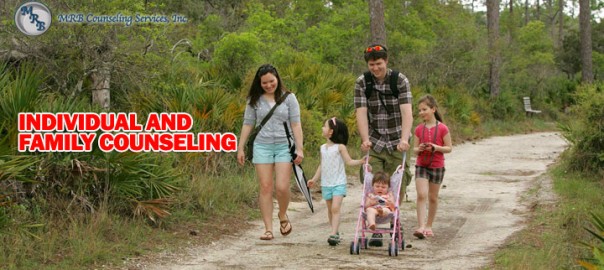Family Therapy
- Are you having difficulty managing your children’s behavior?
- Do you have one or more children lashing out in anger or withdrawing?
- Are you remarried and experiencing step-parenting problems?
If you are seeing problematic behaviors in your children but are unsure why they are occurring, I can assist you in better understanding the behavior in a family context. I invite the whole family to participate in therapy so that we come together as a team to address the problems identified. Parenting skills and psychoeducation about age appropriate behaviors and risky behaviors are offered. Providing children and parents with a safe environment for open communication without judgment is the first and most powerful step in helping families make the improvements they desire.
Military Families
- Are you having difficulty adjusting to the military lifestyle or a recent deployment?
- Do you feel you have lost your partner to PTSD?
- Did innocent online communication turn into an affair and you’re not sure how your marriage can survive?
With my personal experience and specialized training, I am knowledgeable about the many rewards and challenges of the military lifestyle. Whether your family is struggling with a recent deployment or your partner has had an affair, I will help you and your family work together to meet your specific goals.
Individual Therapy/Counseling
What is Individual Therapy?
Individual therapy (sometimes called “psychotherapy” or “counseling”) is a process through which clients work one-on-one with a trained therapist—in a safe, caring, and confidential environment—to explore their feelings, beliefs, or behaviors, work through challenging or influential memories, identify aspects of their lives that they would like to change, better understand themselves and others, set personal goals, and work toward desired change.
People seek therapy for a wide variety of reasons, from coping with major life challenges or childhood trauma, to dealing with depression or anxiety, to simply desiring personal growth and greater self-knowledge. A client and therapist may work together for as few as five or six sessions or as long as several years, depending on the client’s unique needs and personal goals for therapy.
Your first step is to call us to schedule your initial appointment. You will be asked to provide some initial information over the telephone to help us evaluate if MRBCS is your best treatment option. You may then be scheduled for an initial one and half hour evaluation session which provides an opportunity for you to build rapport with the therapist and provide him/her with some background about yourself and the reasons you are seeking counseling. In addition, the intake therapist will be able to answer your questions regarding services, fees, confidentiality and what to expect in therapy.
We are interested in developing a collaborative relationship with you in which we try to decide together what kind of treatment would be best for you. However, not everyone will be referred for continuing therapy at the clinic. We make decisions on what we believe will be best for the client.
At the end of that first session, if we decide that it is in your best interest to move forward working with the assigned therapist, you will decide on a mutually-agreeable time slot for your therapy sessions (typically, the client and therapist will meet once a week, and each session will last approximately one hour). At your second appointment, you will begin working with your therapist to set goals for your therapy experience and then begin working together toward achieving them.
Our Personalized counseling services are offered by highly skilled and licensed mental health professionals.
Our counseling staff is skilled in the individual treatment of the following conditions and concerns:
- ADHD
- Anxiety
- Depression
- Relationships
- Trauma
- Eating Disorders
- Grief Counseling
- Parenting Support
- Assertiveness Skills
- Increasing Self Esteem
- Chronic Pain and or Illness
- OCD
- Anger and Emotional
- Regulation
- Young Adult Issues of Transitions
- LGBT Related Issues
- Cultural Adjustments
Applied Techniques:
At MRBCS the counselors of SEQUENCE are trained in a number of theoretical perspectives, many of which inform the ways they view a given situation or a set of symptoms. Your counselor will be happy to discuss these perspectives with you. At SEQUENCE, the most commonly applied techniques include:
Psychodynamic – This technique involves connecting past relationships and life events with similar, reoccurring issues in the present. By tracing the roots of certain roles, responses and behaviors – a deeper level of self-awareness leading to healthier, happier behaviors will emerge.
Cognitive Behavioral Therapy (CBT) and Dialectical Behavioral Therapy (DBT) – Patterns of thoughts become routine and may lead to unproductive and even destructive behaviors and feelings. The connection between your thoughts and your behaviors is analyzed, and new methods for thinking about your circumstances are outlined and practiced. This method of therapy is strongly augmented with the practice of mindfulness techniques designed to develop strategies for self-calming and management of personal emotions – all of which clear the way for more productive coping strategies.
Strength Based – Individuals seeking counseling are often focused only on what has been going wrong. Through the strengths based techniques, the focus is shifted to what’s going right, what strengths and abilities each individual (couple or family) possesses that they can build upon to develop their own unique and successful coping strategies.
